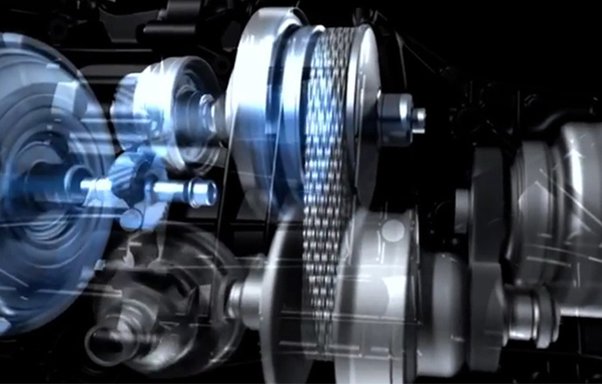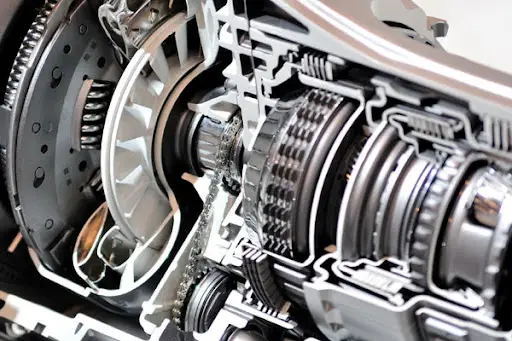Continuously Variable Transmissions (CVTs) have been around for decades, but they’ve become increasingly popular in recent years as automakers strive to improve fuel efficiency. Unlike conventional automatic transmissions that use a fixed set of gear ratios, CVTs can provide an infinite range of ratios, allowing the engine to operate at its most efficient rpm.
| Pros | Cons |
|---|---|
| Improved Fuel Efficiency | Potential Longevity Issues |
| Smooth Acceleration & Deceleration | Delayed Throttle Response |
| Noise & Vibrations | |
| Higher Maintenance Requirements |
| Key Factors for Reliability | Verdict |
|---|---|
| Follow Maintenance Schedule (Fluid Changes) | Reliability depends on make/model/year |
| Avoid Overheating Transmission | Some automakers have had more issues than others |
| Consider Make/Model Track Record | With proper maintenance, 100K-200K miles are possible |
| With proper maintenance, 100K-200K miles are possible |
However, there has been a lot of debate and mixed opinions around the reliability and longevity of CVT transmissions. Some drivers have had issues, while others report no problems at all. So what’s the real story – are CVTs reliable or not?
The Pros of CVT Transmissions
One of the biggest advantages of CVTs is their ability to maximize fuel efficiency. By keeping the engine operating at an optimal rpm range, CVTs help extract more miles per gallon compared to traditional automatics. This is especially beneficial for city driving with frequent starts and stops.
Additionally, CVTs are known to provide smoother acceleration and deceleration since there are no harsh gear shifts. The infinite range of ratios allows for buttery smooth power delivery.
The Cons and Reliability Concerns
On the flip side, there are some drawbacks and common complaints around CVT reliability:
Longevity Issues – Some CVT owners have reported their transmissions failing prematurely, sometimes even before 100,000 miles. Overheating due to lack of maintenance seems to be a common culprit.

Delayed Throttle Response – The inherent design and operation of CVTs can sometimes lead to a “rubber band” feeling where there is a delay between pressing the gas pedal and the vehicle accelerating.
Noise and Vibrations – When first accelerating from a stop, some CVT drivers notice a louder, prolonged “droning” noise compared to traditional automatics as the transmission ramps up through its infinite ratios.
Higher Maintenance Requirements – To ensure proper operation and longevity, automakers recommend changing the CVT transmission fluid at specific intervals, which is a maintenance item that traditional automatics don’t require as frequently.
The Verdict
So are CVTs reliable overall? The answer isn’t a straightforward yes or no. Much of it depends on the specific make, model, and year of vehicle along with how well the CVT is maintained according to the manufacturer’s recommendations.
Automakers like Nissan and Subaru have had more widespread issues with their CVT reliability. However, companies like Honda, Toyota, and GM seem to have engineered more dependable and longer-lasting CVT designs in their recent models.
As with any transmission, properly maintaining the fluid levels and condition is critical for maximizing the lifespan and reliability of a CVT. Failure to change the transmission fluid per the maintenance schedule is a leading cause of premature CVT failure.
Also Read:
- Top 5 SUVs Without a CVT Transmission – SuvExtreme
- What’s the Real Cost of Resurfacing Your Brake Rotors?
- How Much Does Ball Joint Replacement Cost in the United States?
- How Much Does It Cost to Fix a Brake Fluid Leak?
For most drivers who stay on top of maintenance, a modern CVT transmission can remain reliable for over 100,000 miles and up to the 200,000-mile range in some cases. However, there is an inherent design trade-off where CVTs optimize fuel economy at the expense of slightly reduced reliability versus traditional automatics.
Overall, CVT technology continues to evolve and improve, making these transmissions an increasingly smart and viable choice, especially for those who prioritize fuel savings and a smoother driving experience. Just be sure to follow recommended maintenance, and a CVT can deliver reliable service through most vehicles’ expected lifetime.


[…] The Truth About CVT Transmission Reliability […]
[…] The Truth About CVT Transmission Reliability […]
[…] The Truth About CVT Transmission Reliability […]